Table of Contents
Sting (The Police) Every breath you take (Guitar TABS) sheet music
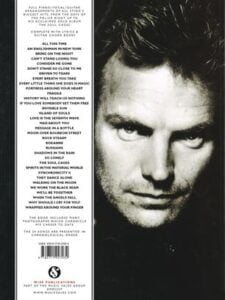
Sting (The Police)
As Ultimate Classic Rock, tells it, Sting, lead singer of The Police, has described himself as “a heavy metal singer”, explaining why it is essential for him to perform his band’s songs in a high register.
The singer has made his comments during an interview with Rick Beato, which you can see below.
Please, subscribe to our Library.
If you are already a subscriber, please, check our NEW SCORES’ page every month for new sheet music. THANK YOU!
“The record thing is interesting”, he explained when he was asked about his particular voice. “A lot of heavy metal singers sing that loud, so I’m a heavy metal singer, although I have a little more melody. It’s the same, to be above the noise that your band makes, you need that record. Actually, you can’t be a baritone in a rock band.’
For Sting, his way of singing is equal to that of “a military sergeant who shouts while his soldiers parade. You know why? Because they had to overcome the sound of artillery on the battlefield. Charge or withdraw. They needed to be heard. Singers have the same need.”
Sting, who recently released his new album ‘The Bridge’, has also spoken about his decision to pursue a solo career after The Police released their last album, ‘Synchronicity’, in 1983. He said that we had achieved all that we could achieve. After that, you start to feel less satisfied. I needed to take other risks in my life.
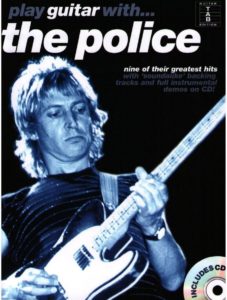
And, of course, he was in a good place thanks to the success of The Police. Whatever he did next, people would, at the very least, be curious. So I used that good time to propel me into the next step in my career. However, it was risky. I think art is always about taking risks. If you don’t risk it, you’re not doing it.’
Sting and the current political situation
Last week, Sting also spoke about the current political climate and opened up about Eric Clapton and Van Morrison’s stances on vaccines.
‘I think we’re living in a very dangerous political climate right now, where the working class has felt abandoned by what they call the elite,’ the singer said on a recent trip to Paris. “That has left them vulnerable to demagogues, right-wing nonsense, fake news and snake oil salesmen.”
Sting continued to talk about the situation in the United Kingdom, where Brexit has caused its separation from the European Union, also affecting artists: “For me, Brexit is a personal tragedy. It is sad for my country. We knew it was going to be a disaster, and we have to accept it, but I’m not happy,” he says. “Young Britons have been robbed of the opportunity to experience Europe. It’s crazy.’
About the two colleagues of his profession, the English said the following:
“I fail to understand the… science of this objection. I have not had any doubts when it comes to getting vaccinated. I am old enough to remember the children on my street with polio, who were crippled, and that disease disappeared overnight with the vaccine. I would like the people who come to my concerts to be vaccinated. I’m not going to force anyone, but that’s my wish.’
Little Gordon was born in the United Kingdom in 1951. His passion for music came from his admiration for the Beatles and the Stones, the two flagships of the British musical army. From his professional beginnings, he combined his work as a Spanish teacher in an institute with that of a soccer coach, while playing at night in a jazz orchestra in his city.
We review his life in these eight curiosities:
- His real name
As everyone can guess, the singer was not born with the name Sting. Gordon Matthew Thomas Summer, which is his original name, began to be called by that nickname (which in English means sting) because in a presentation with the band Phoenix Jazzmen he wore a yellow and black striped sweater that, according to the group’s leader , Gordon Salomon, resembled a bee. At that time, the popular nickname for him was born.
- The birth of The Police
Contrary to what everyone believes, The Police was not created by Sting, but by another member of the band: Stewart Copeland. In 1977, Mike Howlett (bass and vocals), Sting (bass and vocals), Stewart Copeland (drums), and Andy Summers (guitar) formed the band Strontium 90. The group’s first album was called Strontium 90: Police Academy. From there was born the name of the group that would later lead him to fame: The Police.
- The painful death of his parents
His mother died at the age of 53 and his father at 57. However, he was unable to attend the funeral of either of his parents when they died in the late 1980s, as he was on tour. Right in full swing of the band, The Police.
- He wrote his autobiography
In October 2003, Sting published his autobiography titled Broken music, where he recounts particular passages from his childhood that remain, according to his own words, intensely in his memory, to understand how the child he was has become the adult he is today.
- Concerned about the environment
In 1989, Sting and his wife founded the NGO Rainforest Foundation, a non-profit association that initially sought to alleviate the destruction of the Amazon rainforest and the devastating impact that this fact had on the people who lived in those territories. . Over the years, the foundation has made a global impact and even Sting and Trudie have been honored for their philanthropic work by former US President Bill Clinton.
- Millionaire Legacy
He is one of the ten richest musicians in the world, and has stated that he does not intend to leave any inheritance to his children. His fortune is estimated at more than 200 million euros, which he amassed between record sales with The Police. He has vineyards on his estate in Tuscany and a castle in Wiltshire.
- ‘I am a socialist, even if I am very rich’
Despite being a multimillionaire and having achieved success, Sting affirmed in an interview in El País that he continues to be on the left and does not forget his humble past and his precarious childhood, and that he considers himself a socialist. The artist has declared that he does not like to save money, but rather he uses it to create jobs and thus help people.
- Sting, the actor
Although music is his passion, he has participated in more than a dozen films. From the appearance of him in Quadrophenia, he took part in several films during the 80s, such as Dune, The Promised One or Stormy Monday. Starting in the late 1980s, he reflected and said, ‘this is not my thing,’ although he has continued to appear anecdotally. His wife Trudie has also been involved in film as an actress and producer.
The Police
The Police began their history in London, in 1976. Three young musicians joined in the British capital: the French guitarist Henry Padovani, Sting (who played double bass in a modest jazz group) and Stewart Copeland.
The British trio The Police, formed by the singer Sting (vocals), Andy Summers (guitar) and Stewart Copeland (drums) were active from 1977 to 1988 and throughout their career they sold more than 50 million copies of their albums, being one of the most influential bands of the seventies and eighties.
The Police begin by jumping on the ‘punk’ bandwagon, fashionable at the time, but both Sting and Stewart hated the movement’s lack of quality. To improve their own style, they hire a well-known guitarist, Andy Summers.
Their next step towards stardom came when they dyed their hair blonde for a chewing gum commercial. That would be his look for several years.
Shortly after The Police release their first big hit, ‘Roxanne’, a desperate love song to a prostitute, a song that was banned from all English-speaking stations, as was their next song, ‘Can’t Stand Losing You’. ‘.
In 1978, they released their first album, ‘Outlandos D’Amour’, which became a great sales success. On this album airs of jazz, reggae and rock were mixed.
The following year they released their second album, ‘Reggatta De Blanc’, after which they began their first major tour. A year later they released ‘Zenyatta Mondatta’, an album they made reluctantly and due to pressure from the company, despite the fact that it contained some quality songs.
In 1981, The Police released ‘Ghost In The Machine’ and in 1983 ‘Synchronicity’, their last album and which contained the band’s biggest hit, ‘Every Breath You Take’. This album was recorded in Canada and was number one in England and the United States for 17 weeks, winning three Grammy Awards.
After this latest album, the members of the group have gradually moved away. The one who has come out the best has been Sting, who has participated in several films and has continued his solo musical career with the publication of several albums, one of them in Spanish.
The rest of the members of Police have been integrated into other bands or working alone on occasion.
Browse in the Library:
| Artist or Composer / Score name | Cover | List of Contents |
|---|---|---|
| The Complete Keyboard Player Book 3 by Kenneth Baker |
 |
|
| The Complete Piano Player Book 1 by Kenneth Baker |
 |
The Complete Piano Player Book 1 |
| The Complete Piano Player Book 2 by Kenneth Baker |
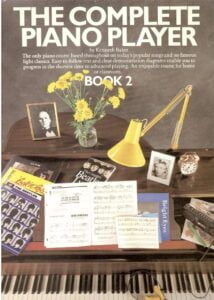 |
|
| The Complete Piano Player Book 4 by Kenneth Baker |
 |
|
| The Complete Piano Player Book 5 by Kenneth Baker |
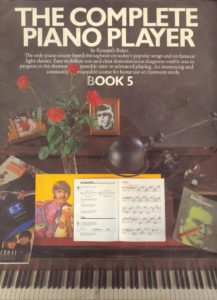 |
The Complete Piano Player Book 5 |
| The Complete Piano Player Easy Blues |
 |
The Complete Piano Player Easy Blues |
| The Complete Piano Player Style Book by Kenneth Baker |
 |
The Complete Piano Player Style – Book by Kenneth Baker |
| The Conformist – Main theme (Georges Delerue) | ||
| The Contradictions Of Jazz (Studies In Jazz) by Paul Rinzler (Book) |
 |
|
| The Corrs – Angel | ||
| The Corrs – It’s Easy To Play The Corrs |
 |
The Corrs – It’s Easy To Play The Corrs |
| The Corrs – One Night | ||
| The Corrs – Play Guitar With – MP3 audio tracks embedded in PDF Play Along with Tablature |
 |
Play Guitar With – The Corrs |
| The Corrs – Runaway | ||
| The Cottage on the Beach (Atonement OST) Dario Marianelli | ||
| The Country Music Fake Book |
 |
The Country Music Fake Book |
| The Creative Development of Johann Sebastian Bach Volume I (1695-1717) |
 |
|
| The Creative Development of Johann Sebastian Bach, Vol II, 1717-1750 |
 |
|
| The Cure – The Best Of [Guitar Tablature Songbook] |
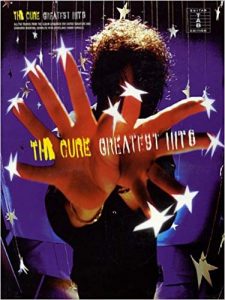 |
The Cure – The Best Of [Guitar Tablature Songbook] |
| The Cure Disintegration(Guitar & Vocal sheet music) with Tablature |
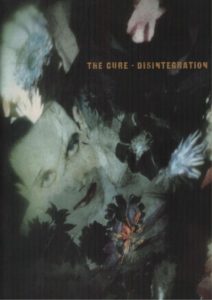 |
The Cure Disintegration Guitar |
| The Curious Case of Benjamin Button – Alexandre Desplat |
 |
The Curious Case of Benjamin Button – Alexandre Desplat |
| The Danish Girl – Fonnesbech (Alexandre Desplat) | ||
| The Danish Girl (Alexandre Desplat) | ||
| The Day of the Dolphin (Georges Delerue) | ||
| The Deer Hunter – Cavatina – Stanley Myers | ||
| The Definitive Jazz Collection Alto Saxophone With Chords |
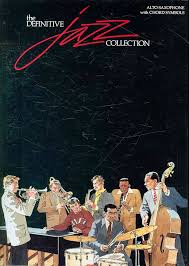 |
The Definitive Jazz Collection Alto Saxophone With Chords |
| The Disappearance Of Hatsune Miku Piano |
 |
|
| The Doobie Brothers Long Train Runnin Piano Vocal Guitar chords |
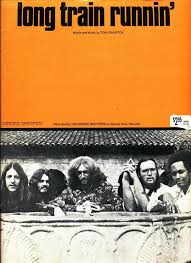 |
|
| The Doors – Hello I Love You | ||
| The Doors – Light My Fire | ||
| The Doors – Riders On The Storm | ||
| The Doors – Rock Score (band songbook) |
 |
|
| The Doors Anthology (Guitar & Tablature) |
 |
The Doors Anthology (Guitar & Tablature) |
| The Doors Guitar Tablature Anthology |
 |
The Doors Guitar Tablature Anthology |
| The Doors Songbook |
 |
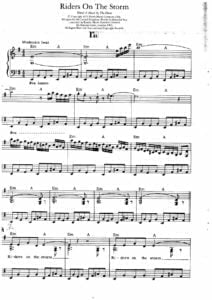 |
| The Doors The Music Of The Doors |
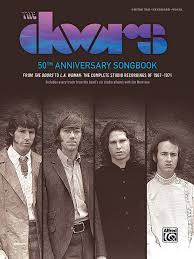 |
The Doors The Music Of The Doors |
| The dream within (Lara Fabian) | ||
| The Eagles (Guitar Backing) Jam with – (with MP3 audio tracks to play along) with Tablature |
 |
The Eagles Jam with |
| The Ecstasy of Gold (Ennio Morricone) | ||
| The Elder Scrolls III Morrowind Title Music |
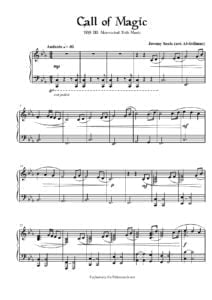 |
|
| The End Of The World – Skeeter Davis |
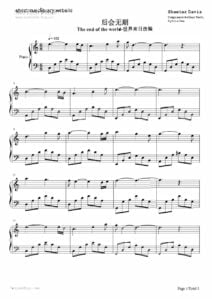 |
|
| The End Of The World – Skeeter Davis (Musescore File).mscz | ||
| The English Patient – Main Theme (Musescore File).mscz | ||
| The English Patient Piano Solo Gabriel Yared |
 |
|
| The Entertainer (Musescore File).mscz | ||
| The European Piano Method Vol. 1 Fritz Emonts |
 |
|
| The European Piano Method Vol. 2 Fritz Emonts |
 |
|
| The Evolution Of Jazz Arranging by Fred Sturm (Book) |
 |
|
| The Evolution Of The Art Of Music Cambridge Librar. (Book) |
 |
|
| The Exciters – Tell Him | ||
| The Exercise Book Guitar Grimoire Series Adam Kadmon Guitar Tablature |
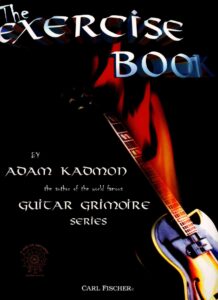 |
|
| The Exorcist Main Theme Piano Solo arr. Robert Miles and Storm Kesocascay | The Exorcist Main Theme Piano Solo arr. Robert Miles and Storm Kesocascay cover | |
| The Fantasticks – Celebration – Tom Jones & Schmidt, Harvey | The Fantasticks. Celebration – Tom Jones & Schmidt, Harvey | |
| The Fault In Our Stars Songbook Sheet Music Piano Vocal Guitar |
 |
The Fault In Our Stars Songbook Sheet Music Piano Vocal Guitar |
| The First Noel – 17th Century English Carol – Easy Piano Arr. With Lyrics (Musescore File).mscz | ||
| The First Principles Of Pianoforte Playing (By Tobias Matthay) (1905) |
 |
|
| The Fountain – Lastman – Clint Mansell | ||
| The Four Seasons – Vivaldi (Musescore File).mscz | ||
| The Four Seasons (Complete) (Musescore File).mscz | ||
| The Fray – How To Save A Life | ||
| The Fray How to Save a Life |
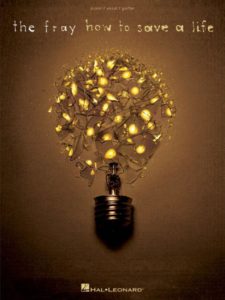 |
The Fray How to Save a Life |
| The Freddie Mercury album (Queen) Piano Vocal Guitar |
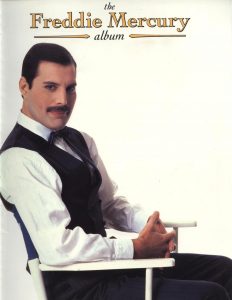 |
The Freddie Mercury -Album |
| The Free Music Analysis Anthology by Mark Feezell | Book Theory | |
| The Frim Fram sauce by Joe Ricardel and Redd Evans -Jazz Play Along |
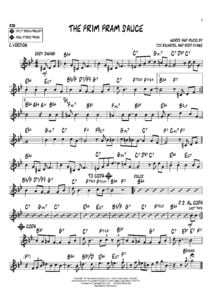 |
The Frim Fram sauceMusic: |
| The Full Monty (The Musical) – Piano Conductor Score Book by Terrence McNally Music and Lyrics by David Yazbek |
 |
The Full Monty (The Musical) – Piano Conductor Score |
| The Fusion Guitar Workbook (Deutsch German) with Tablature |
 |
|
| The Genius Of Kurt Weill (1938) |
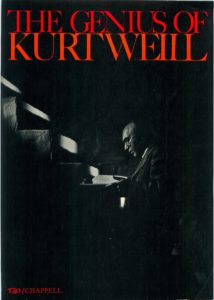 |
The Genius Of Kurt Weill (1938) |
| The Genius Of The Jazz Giants Vol 4 |
 |
The Genius Of The Jazz Giants Vol 4 |
| The Giants Of Jazz Piano |
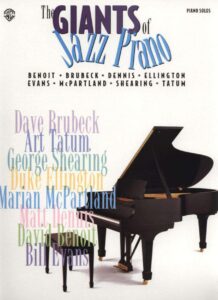 |
The Giants Of Jazz Piano |
| The Gipsy Jazz Guitar Songbook |
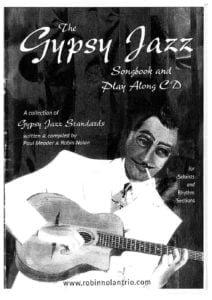 |
The Gipsy Jazz Guitar Songbook |
| The Girl From Ipanema (Antonio Carlos Jobim & Vinícius de Moraes) Jazz Piano Solo arr. sheet music |
 |
|
| The Girl From Ipanema (Guitar Tabs) (Musescore File).mscz | ||
| The Girl with the Sun in her Hair (John Barry) | ||
| The Glorious Ones – I Was Here (Piano vocal) by Lynn Ahrens and music by Stephen Flaherty | The Glorious Ones – I Was Here (Piano vocal) by Lynn Ahrens and music by Stephen Flaherty | |
| The Godfather – Love theme (Nino Rota) | ||
| The Godfather – Main Theme | ||
| The Godfather 2 – End Title (Nino Rota) | ||
| The Godfather Songbook – piano |
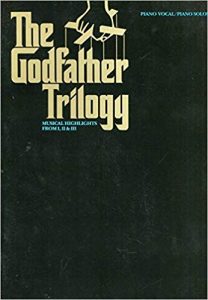 |
 |
| The Godfather Theme (Nino Rota) | ||
| The Godfather Waltz (Musescore File).mscz | ||
| The Godfather Waltz (Nino Rota) | ||
| The Golden Era Of Rock And Roll (Piano, vocal and Guitar Chords) |
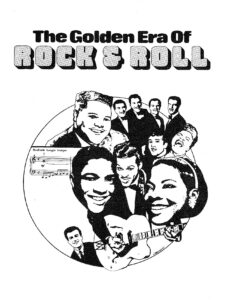 |
The Golden Era Of Rock And Roll (Piano, Vocal And Guitar Chords) |
| The Gravel Road (The Village OST) James Newton Howard | ||
| The Great American Movie Songbook (for organ & keyboard) Very easy |
 |
The Great American Movie Songbook |
| The Great Composers (By Hezekiah Butterworth) (1884) |
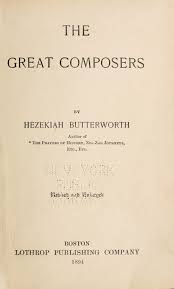 |
|
| The Greatest Love Songs Of The 21st Century |
 |
The Greatest Love Songs Of The 21st Century |
| The Greatest Love Songs Of The 60s |
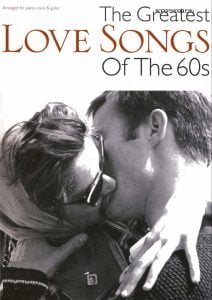 |
The Greatest Love Songs Of The 60s |
| The Greatest Love Songs Of The 70s |
 |
The Greatest Love Songs Of The 70s |
| The Greatest Love Songs Of The 80s |
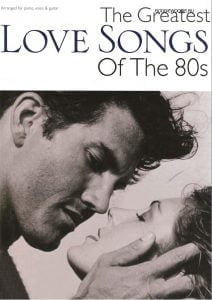 |
The Greatest Love Songs Of The 80s |
| The Greatest Love Songs Of The 90s |
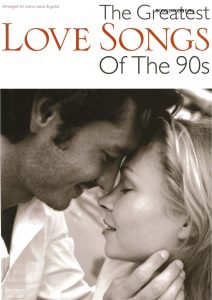 |
The Greatest Love Songs Of The 90s |
| The Greatest Showman Vocal Selections |
 |
The Greatest Showman Vocal Selections |
| The Grinch You’re A Mean One Mr. Grinch (Easy Solo Piano Arr.) By Dr. Seuss And Albert Hague | The Grinch You’re A Mean One Mr. Grinch (Easy Solo Piano Arr.) By Dr. Seuss And Albert Hague | |
| The Grinch You’re A Mean One Mr. Grinch (Jazzy Solo Piano Arr.) By Dr. Seuss And Albert Hague | The Grinch You’re A Mean One Mr. Grinch (Jazzy Solo Piano Arr.) By Dr. Seuss And Albert Hague | |
| The Grinch – You’re A Mean One Mr. Grinch (Easy Solo Piano Arr.) By Dr. Seuss And Albert Hague (Musescore File).mscz | ||
| The Grinch – You’re A Mean One Mr. Grinch (Jazzy Solo Piano Arr.) By Dr. Seuss And Albert Hague (Musescore File).mscz | ||
| The Guitar Works Of Garoto Vol 1 Guitar Scores |
 |
The Guitar Works Of Garoto Vol 1 Guitar Scores |
| The Guitarist’s Scale Book by Peter Fogl with TABs |
 |
|
| The Hanging Tree Sheet Music (From The Hunger Games Mockingjay, Part 1) (James Newton Howard) |
 |
|
| The Harmonious Blacksmith – Gf Händel (Musescore File).mscz | ||
| The Harmony Of Bill Evans by Jack Reilly |
 |
The Harmony Of Bill Evans (Piano Score) |
| The Healing – Lady In The Water | The Healing – Lady In The Water | |
| The Hill (Marketa Irglova) | ||
| The History Of Jazz – Book by Ted Gioia (Oxford Un. Press) |
 |
|
| The history of the blues – Koopmans Andy (Book) |
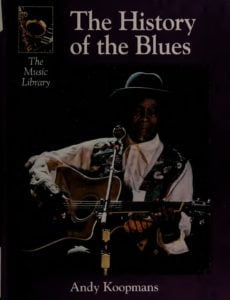 |
|
| The Hobbit – Song of the lonely mountain (Neil Finn) |
 |
The Hobbit song of the lonely mountain |
| The Horse Whisperer Sheet Music Voice Of God – Thomas Newman | ||
| The Horse Whisperer Sheet Music – Montana – Thomas Newman | The Horsewisperer – Montana – Thomas Newman | |
| The Horse Whisperer Sheet Music – The Vast Continent – Thomas Newman | The Horsewisperer – Montana – Thomas Newman | |
| The Horsewisperer – Montana – Thomas Newman | ||
| The Horsewisperer – The Vast Continent – Thomas Newman | ||
| The Horsewisperer – Voice Of God – Thomas Newman | ||
| The House of the raising Sun – Traditional (Guitarr arr. sheet music) | The House of the raising Sun – Traditional (Guitarr arr. sheet music) | |
| The Hundred Best Short Classics Book 2 Cuthbert Whitemore |
 |
The Hundred Best Short Classics Book 2 Cuthbert Whitemore |
| The Hunger Games – James Newton Howard The Train |
 |
|
| The Immigrant – Love theme (The Godfather OST) Nino Rota | ||
| The Immigrant (The Godfather OST) Nino Rota | ||
| The Imperial March Star Wars Sheet Music For Piano by John Williams |
 |
The Imperial March Star Wars Sheet Music For Piano |
| The Improvisation Of Musical Dialogue A Phenomenology Of Music (Bruce Ellis Benson) Book |
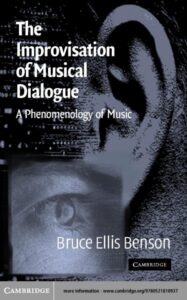 |
|
| The Interpretation Of Piano Music (By Mary Venable) (1913) |
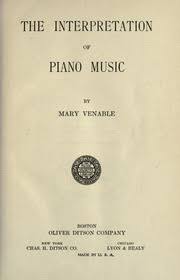 |
|
| The Jazz Piano Book Mark Levine |
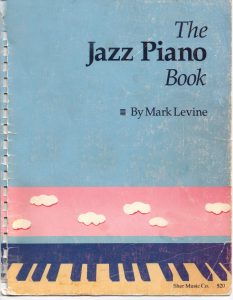 |
jazz piano book |
